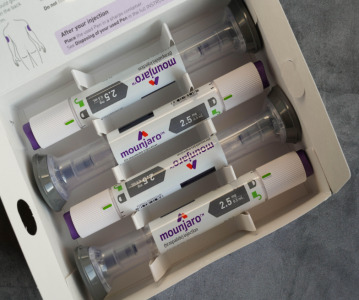New Report Shows UK Cancer Patients Face Increasing Coverage Restrictions Due to Centralized Cost-Effectiveness Standard

New research results quantify the extent to which centralized value assessments by the UK’s National Institute for Health and Care Excellence (NICE) lead to coverage denials and patient access restrictions to new drugs and biologics. The analysis conducted by Context Matters, and sponsored by the Pharmaceutical Research and Manufacturers of America (PhRMA), shows that use of centralized cost-effectiveness standards by NICE and similar appraisals in other countries limit patients’ access to new cancer treatments, which evolve rapidly and are increasingly personalized.
According to the Context Matters analysis of NICE decisions during the last 7 years (2007–2013):
• NICE rejected all six cancer medicines that it reviewed in 2013
• Cancer medicines were more than three times likely to be rejected than non-oncology medicines
• Nearly 60% of oncology medicines were rejected, compared with only 16% of non-oncology products
• Almost 80% of cancer medicines reviewed in the last 7 years have been given some kind of access restriction.
“These findings underscore the challenges created by coverage and payment policies that rely on centralized, one-size-fits-all value assessments,” said John J. Castellani, President and CEO, PhRMA. “While it’s important to ensure healthcare decisions are grounded in the best available evidence, it is also essential to ensure it is not misapplied in ways that deny patients’ access to valuable treatment advances. We need approaches that put the patient at the center of healthcare decision making and support patients and physicians in choosing the treatment options that best meet the individual’s needs.”
Castellani noted that the 5-year relative survival rates for cervical, breast and colorectal cancer are higher in the US (67%, 90% and 65% respectively) than they are in the UK (59%, 78% and 51%, respectively).
Dr Yin Ho, Founder and CEO of Context Matters, said the findings of this analyses “calls into question whether current HTA models are sufficiently flexible to account for variability in patient needs and preferences and recognize the way that understanding of a new treatment’s value emerges over time.” Dr Ho was also an author on the study.
Additional analysis released by Context Matters indicated global variability in the HTA decisions of several major countries’ organizations compared with the UK’s NICE. NICE agreed with other agencies 56% of the time over oncology reviews, and 81% for non-oncology reviews.
“The degree of variability of these decisions, especially for cancer medicines, illustrates the complexity of the environment our innovator companies must navigate in order to deliver life-saving medicines to patients,” said Castellani. “The fact that the same body of high quality evidence can elicit such different decisions reveals the subjective nature of these assessments.”
Related News
-
News The next 15 drugs up for negotiation with Medicare include several blockbusters
By now, everyone is quite familiar with the drug price negotiations taking place between drug companies and the Centres for Medicare & Medicaid Services (CMS) in the USA as part of measures being taken to reduce the cost of drugs for patients, to make ... -
News PSCI Welcomes Delpharm, Samsung Biologics, and Suven as First Supplier Partners
The pharmaceutical industry continues to evolve with an increasing focus on responsible sourcing, sustainability, and collaboration across the supply chain. Under a new model to recognise suppliers within the pharmaceutical and healthcare industry that... -
News Drug prices agreed upon as part of the US Inflation Reduction Act
The Inflation Reduction Act brought into constitution by the Biden administation in 2022, which proposed a drug price negotiation between the government and pharmaceutical companies, has reached it's first agreement. -
News Eisai Alzheimer’s drug authorised in UK but still faces obstacles
In partnership with BioArctic AB, pharmaceutical company Eisai has been granted Marketing Authorisation by the Medicines and Healthcare products Regulatory Agency (MHRA) for its Alzheimer’s disease drug product Leqembi. -
News Eli Lilly's weight loss drugs removed from the FDA's shortage list
The US FDA have recently updated their drug shortage list. The recently released list shows that all dosage forms of Eli Lilly's weight-loss drug Zepbound and their diabetes drug Mounjaro are now available. -
News Global advancements in the diagnosis and treatment of rare diseases: Rare Disease Day 2024
Rare Diseases Day is celebrated on the 29th February 2024 and represents the plight of rare disease patients to gain diagnosis and access to suitable treatment. -
News Pharmaceutical industry supports COP28 health stance in joint statement
As COP28 takes place over this week in Dubai, UAE, several bodies in the pharmaceutical and health industries have come together to announce support of key movements in sustainability in the sector, and to recognise sustainability as a health issue.&nb... -
News Biden backs Cold-War measures to shore-up medical supply chains
In a recent strategy to combat rising inflation and the cost of living crisis, President Joe Biden has invoked a Cold War-era act to increase investment in a selection of medicines and supplies.
Recently Visited
Position your company at the heart of the global Pharma industry with a CPHI Online membership
-
Your products and solutions visible to thousands of visitors within the largest Pharma marketplace
-
Generate high-quality, engaged leads for your business, all year round
-
Promote your business as the industry’s thought-leader by hosting your reports, brochures and videos within your profile
-
Your company’s profile boosted at all participating CPHI events
-
An easy-to-use platform with a detailed dashboard showing your leads and performance



.png)



